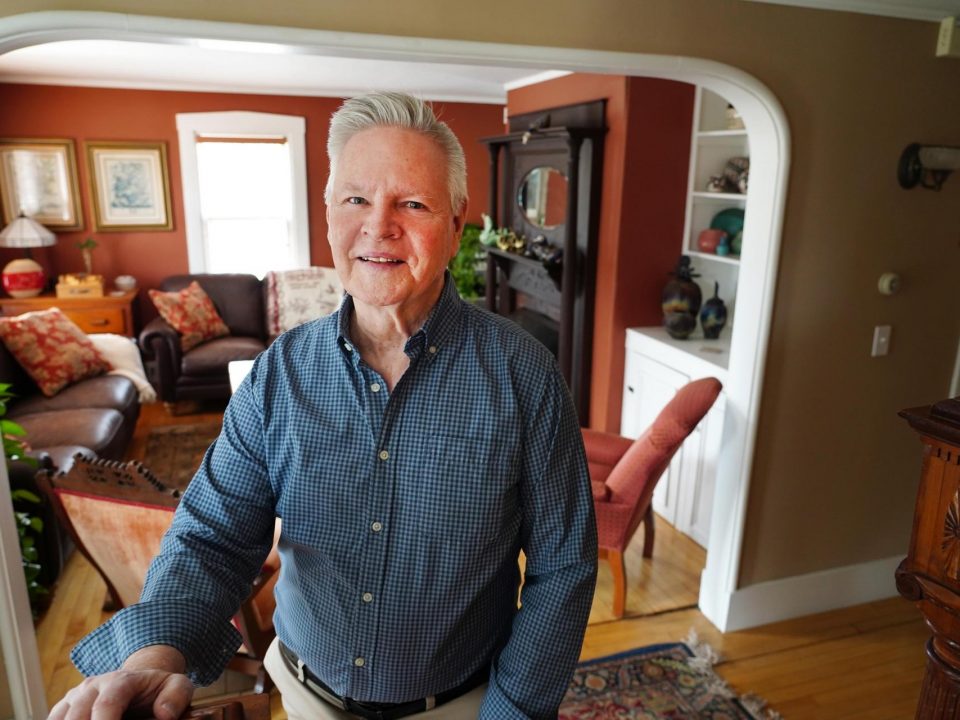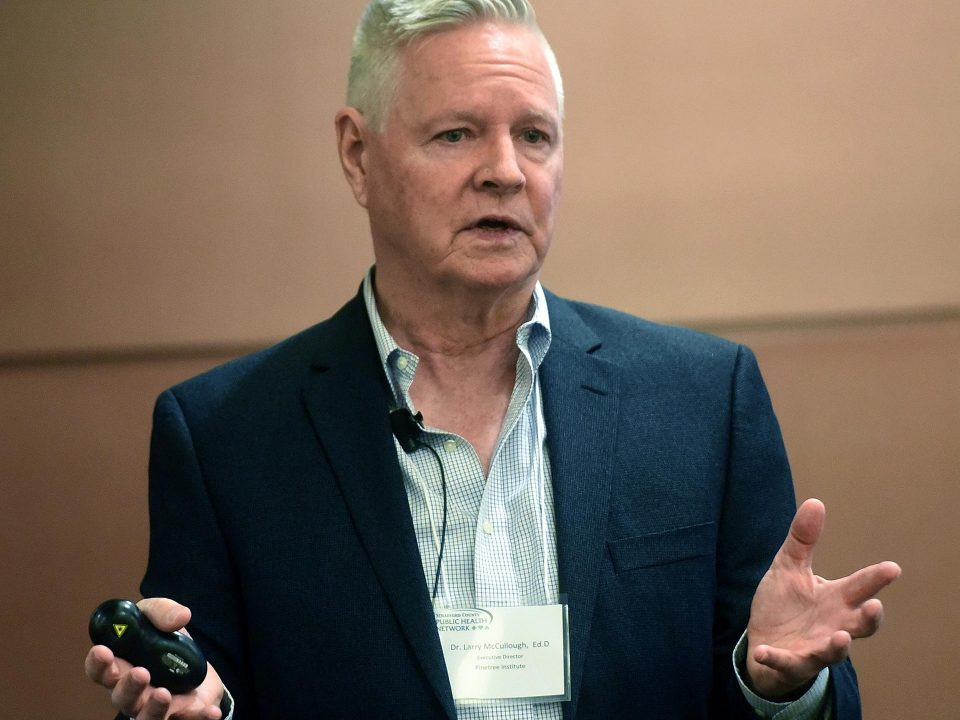Mark Lefebvre, left, program manager for NH Works for Recovery, and committee chair Cliff Lazenby, Portsmouth’s assistant mayor, listen to Peter Fifield, program manager for The Doorway-Dover, during a steering committee meeting of the Portsmouth Community Coordinated Response to Substance Misuse initiative. [Rich Beauchesne/Seacoastonline, file]
By Hadley Barndollar
Dec 18, 2019
First appeared here: https://www.seacoastonline.com/news/20191218/committee-lack-of-housing-transportation-challenges-recovery-programs
PORTSMOUTH — The city’s Community Coordinated Response to Substance Misuse looks to move forward with the formation of five task forces in 2020 to address high-priority areas of community education, housing, employment, transportation and integrated referral.
The effort’s steering committee, which met four times between July and November, has 19 members from various sectors including city government, social services, public health, economic development, emergency response, corrections, schools and others.
The work, which the committee seeks to continue as a whole in 2020, centered on the assessment of current area resources, and then identification of gaps. This week, Assistant Mayor Cliff Lazenby, who chairs the committee, presented the City Council with recommendations, which the group was charged with delivering by year’s end. The recommendations, which Lazenby tagged as an “action plan for 2020,” include a one-year continuation of the Portsmouth Rotary Club seed-funded effort and the formation of five priority-area task forces.
Committee facilitator Dr. Larry McCullough, of the Pinetree Institute, called the coordinated response “a very exciting process” that has seen “tremendous participation from virtually every part of the city.”
McCullough said the committee discussed the fact no sober or transitional housing options exist in Portsmouth or Rockingham County — blanketing the southeast corridor of the state and consisting of 37 towns and cities.
“When someone is on a path to recovery and has gotten a lot of help and is discharged from a program, they are basically dropped and there’s nowhere to go,” McCullough said. “That has to be addressed. And it’s not easy because it’s related to all of the other housing issues in Portsmouth.”
The Portsmouth Housing Authority recently reported a wait list of nearly 700 individuals, while the city’s homeless shelter, Cross Roads House, has a wait list of approximately 160 people.
Transportation goes hand-in-hand with housing. McCullough noted the Doorway location in Dover, designed to serve the entire Seacoast, has seen nearly 80% of its visitors from Strafford County only, because it’s not easily accessible for those along the coast with unreliable or no transportation. Peter Fifield, program manager at the Dover Doorway, previously said for individuals in Seabrook, a “high-need area” in the opioid epidemic, the 30-plus minute trip and two tolls can deter someone going to the Dover location.
Stephen Church, superintendent of Rockingham County Department of Corrections, said housing and transportation is “critical,” especially when it comes to laying a platform of success for high-risk individuals.
“Where is somebody going to lay their head at night?” he said. “A safe place to live, a way to get to appointments. We might think a 10-minute drive is nothing, but if you have nothing and no one can get you there, that is an insurmountable task.”
Church said all the priority areas identified through the steering committee should be viewed through a public health lens. In the corrections profession, which has seen a narrative shift toward rehabilitation and reentry, the reformatory work done at the jail — through case management and mental heath and addiction treatment — means nothing if the necessary tools are not available on the outside for individuals to succeed.
Heather Blumenfeld, director of Safe Harbor Recovery Center, said sober living in Rockingham County is her top priority for 2020. “A lot of people need the structure of a sober home, need that accountability, that support,” she said. “We’ve got to do something about that.”
Jessica Norton, director of inmate services and programming at the Rockingham County jail, noted because all sober and transitional facilities are outside the county, the DOC is constantly displacing people upon release, moving elsewhere a potential workforce looking for a positive community reentry. If a formerly incarcerated person is from Portsmouth, but the only bed available is in Nashua, that’s not necessarily of benefit.
An entire task force will be dedicated to case management and coordinated referral, so “individuals are not dropped at the edge of their service,” McCullough said. He noted it’s easy for social services organizations to operate in silos, and clients fall victim to that. The task force will explore issues related to shared information and service planning.
Christine Burke, wellness coordinator for Portsmouth schools, will focus on the education component combined with trauma-informed care and prevention.
“It’s probably, in my opinion, one of the biggest new developments in public health in a really long time,” Burke said of the impact of trauma on a person’s development. “The experience of your childhood shapes your behavior and perceptibility to illness and disease. It gives a reason and takes away that idea of stigma.”
Burke said in addition to research looking at adverse childhood experiences, her task force will examine new data coming out of Johns Hopkins University that looks at the impact of positive childhood experiences, which has four community-based indicators. “Things we can take action on,” she said.
Lazenby said the committee will bring its recommendations and request for renewal before the new City Council in January.
First appeared here: https://www.seacoastonline.com/news/20191218/committee-lack-of-housing-transportation-challenges-recovery-programs


